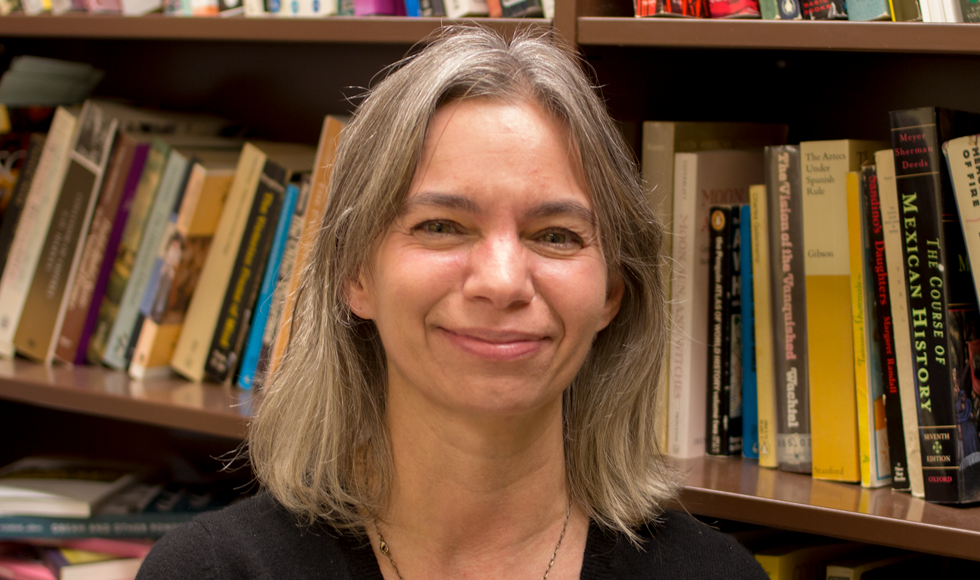Juanita De Barros named new director of the Centre for Human Rights and Restorative Justice

Juanita De Barros, a history professor who has been on the CHRRJ’s advisory committee since it began in 2020, takes over from founding director Bonny Ibhawoh, who left the post in July 2022 to become McMaster’s vice-provost of international affairs.
BY Sara Laux
September 9, 2022
Juanita De Barros has been named the new director of McMaster’s Centre for Human Rights and Restorative Justice (CHRRJ), a research centre within the Faculty of Humanities that brings together researchers from a wide range of disciplines to study human rights and restorative justice processes around the world.
De Barros, a history professor who has been on the CHRRJ’s advisory committee since it began in 2020, takes over from founding director Bonny Ibhawoh, who left the post in July 2022 to become McMaster’s vice-provost of international affairs.
“The centre has only been in existence for a couple of years, but Bonny has brought so much vision, interest and energy to it that it’s hard to imagine the Faculty of Humanities without it,” says De Barros.
“It’s a place where the various members can explore opportunities for collaborative research and support a wide range of research agendas.”
The centre’s activities are organized into three clusters: Human Rights and Memory, Transitional and Restorative Justice, and Social and Environmental Justice.
Within that framework, the CHRRJ has hosted conferences, and is involved in three ongoing projects: Participedia, a global network of researchers, activists and other working on democratic innovations around the world; Participedia.net, a crowdsourcing platform gathering information about participatory democracy around the world; and the Confronting Atrocity Project, a transnational study and database of human rights truth commissions around the world.
De Barros is a specialist in the history of the Caribbean, focusing on urban history, gender, the history of childhood and the social history of health and medicine. She is currently working on a SSHRC-funded project that looks at the intersection of children’s labour and health in children’s reformatories in the British Caribbean, and has also started a new project investigating abortion law in British Guyana.
Her paper, “The Death of Molly Schulz: Race, Magic and the Law in the Post-Slavery Caribbean,” recently won the 2021-2022 Association of Caribbean Historians Andrés Ramos Mattei-Neville Hall Article Prize, a biennial award that recognizes the best article in the field of Caribbean history.
Other members of the CHRRJ include faculty members from McMaster’s Faculty of Humanities, Faculty of Social Sciences and DeGroote School of Business. Upcoming collaborations include a virtual conference on truth commissions in October 2022, and a hybrid international conference on child protection and the rights of the child in January 2023.
That interdisciplinary approach, says De Barros, was intentional and is one of the CHRRJ’s great strengths.
“Not only do we have members from different disciplines and different faculties, but we also have researchers from all stages of their careers as well, including graduate students,” she explains.
“The Centre provides the infrastructure for different researchers to work together on different projects related to human rights.
“One of the director’s main jobs is to be a cheerleader – to support and encourage the work that other people are doing.”


